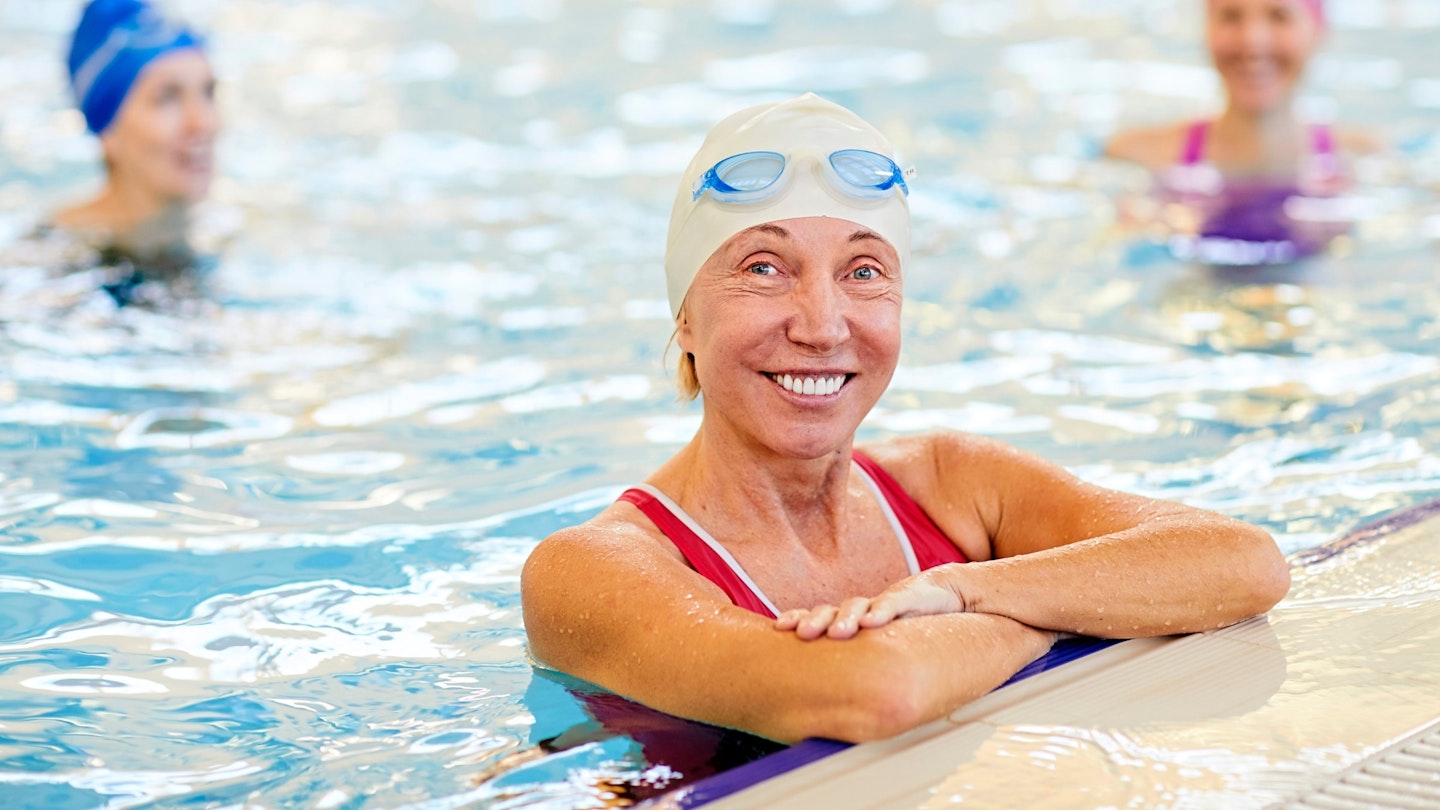Have you ever walked into a room and forgotten what you went in for? Or struggled to remember someone’s name? You’re not alone, but there are lots of things you can do to sharpen your memory.
‘Memory decline is a natural part of ageing,’ says consultant counselling psychologist Dr Ritz Birah, who has a degree in neuroscience and founded Reflect with Dr Ritz. ‘The hippocampus, which plays a key role in memory, shrinks over time, making recall and learning new information harder. Stress, poor sleep and lack of mental stimulation can accelerate this process.’
She adds, ‘Normal ageing involves occasional forgetfulness – misplacing items or struggling with names but recalling them later. Dementia, however, is a progressive condition affecting daily life, with persistent memory loss, confusion, and difficulty with familiar tasks. If memory problems interfere with independence, it’s worth seeking professional advice.’
There are number of things you can do to reduce your risk of dementia and also a whole host of simple way to improve your memory in general. Here's some ways:
1. Fill up on berries

Research suggests that the antioxidants found in fruit and vegetables can improve cognitive performance and even reverse the effects of ageing on the brain and are the best foods for longevity.
In addition, a 2022 study found that cranberries could improve memory. The research looked at the impact of eating around 100g of cranberries daily in 60 adults aged 50 to 80 over a period of 12 weeks, and found that participants showed significantly improved episodic memory performance (memory of everyday events). They also saw a decrease in ‘bad’ cholesterol.
Brain expert and cognitive rehab therapist, Natalie Mackenzie, says, ‘Berries are rich in antioxidants and have many health benefits. For brain health, a diet rich in fresh fruit and vegetables will always be promoted. Think fruit and vegetables such as broccoli and spinach, strawberries and avocado, nuts and seeds; and tasty seafood options such as fresh wild salmon, vibrant rainbow trout and halibut; wholesome oils for cooking and dressings such as rich olive oil and versatile canola oil. All work towards promoting healthy brains.’
2. Exercise for a 24-hour boost

There is a clear link between exercise and dementia. A study led by University College London suggests that the boost our brains get after we do exercise lasts for around 24 hours. The study found that, on average, people aged 50 to 83 who did moderate to vigorous physical activity performed better in memory tests the day after.
Natalie comments, ‘Movement aids us in remembering things, as well as improving key cognitive skills, such as how quickly we think and make decisions. Exercise has also been shown to increase the size of our hippocampus [the part of the brain used for memory and learning] too. So get moving to literally grow your brain!’
She adds, ‘The good news is you don't need to spend hours to get a cognitive benefit. When time is tight, but you still want to give your brain a little extra punch, aerobic exercises like jogging, swimming or cycling are great. Just a quick 20-minute session of increasing your heart rate can work wonders. Keep at it for around a month, about three to four times a week, and you'll start to see some improvements.’
3. Do a puzzle

A study by The University of York showed that older adults who regularly play digital puzzle games have the same memory abilities as people in their 20s.
Dr Birah says, ‘Engaging in puzzles, Sudoku, or other logic games strengthens working memory, problem-solving skills, and attention to detail. These activities challenge the brain by requiring pattern recognition, strategic thinking, and recall of past moves, which keep neural connections strong and flexible.’
Why not try a puzzle book for adults or invest in a puzzle board to keep your brain active and healthy.
4. Learn a new skill

Now is the time to sign up to that knitting group, cookery class or learn the basics of a new language. Natalie says learning a new skill is key.
She explains, ‘Research suggests that learning a new skill or language is the best thing you can do to improve cognitive decline. Learning something new promotes synaptic growth [the formation of new connections in the brain] and boosts cognitive reserves.’
Rosetta Stone offers online language courses. You can also check out local noticeboards for opportunities in your area to learn new skills.
You can also join the Yours Fit Mind 50 initiative and challenge yourself to do 50 new things in a year. Find out what is Fit Mind 50 here.
5. Hold your toothbrush with the opposite hand

Making small daily change, such as brushing your teeth with the opposite hand, walking up the stairs with a different leading foot and stirring the saucepan with the other hand, can make a difference.
Natalie says, ‘When we do things repetitively, we fine tune the skills, but that doesn’t do much for growth and neural pathway formation. This is why learning new things is one of the most beneficial things we can do. We have a cognitive profile of things that we do better and worse, so it makes sense that we would need to work more on the weaker or less dominant areas to improve performance. We must always keep working on the not-so-easy to promote that neural activity and growth.’
6. Prioritise sleep

Sleep is an important factor in improving your memory. ‘During sleep, the brain consolidates memories and processes emotions. Poor sleep can lead to brain fog, reduced concentration, and weaker memory,’ says Dr Birah.
Natalie says, ‘Most poor sleepers have a poor routine. We are either morning larks or night owls, and determining which one you are (you will lean more to one even if you have traits of another) will help you set a realistic routine. Consistency is key, going to bed at the same time and waking at the same time.’
Dr Ritz adds, ‘Limit screen exposure before bed, and create a wind-down routine. I encourage an evening reflection: write down three things you are grateful for and one goal for tomorrow. This helps ease the mind, reduce stress, and signal to the brain that the day is complete, making restful sleep more likely.’
Follow our expert guide to 24 hours to better sleep and get a full eight hours tonight with these easy tips and tricks
7. Connect with others

Being part of the community and interacting with people is vital when it comes to our brains. Dr Birah says, ‘Social interactions stimulate the brain by engaging memory, language, and emotional processing, reducing the risk of loneliness and depression – both of which can contribute to cognitive decline. Engaging in meaningful conversations also provides mental stimulation, keeping the brain active and adaptable.’
She adds, ‘For older adults, staying socially engaged can involve joining community groups, volunteering, or even regular phone or video calls with family and friends.’
Check out opportunities for volunteers week, local noticeboards, visit your local community centre or sign up to a new hobby or exercise class if you feel you need more connection in your life.
8. Pay attention to your senses

Taking some time to yourself with no distractions is important for your memory. Dr Birah says, ‘Mindfulness strengthens memory by improving focus, reducing stress, and enhancing the brain’s ability to store and retrieve information. When we’re constantly distracted, our brains struggle to encode memories effectively. Mindfulness helps by training attention and presence, allowing us to absorb and recall information more easily.’
She says just a small amount will make a difference. ‘Start small by focusing on just five deep breaths, then build up to a minute of mindful awareness. Over time, you can work up to 10-minute meditations. Mindfulness meditation can help you sleep better, if done in the evening. Incorporate simple mindfulness exercises, like paying attention to your senses during daily tasks or reflecting on key moments from your day, to make mindfulness a natural and accessible habit.’
Annabelle Lee is a Lifestyle Editor at Bauer Media. She specialises in health, wellness and lifestyle celebrity content. She studied Journalism at The University of Sheffield and started her magazine career at Cosmopolitan in 2010. She has since worked across a wide range of women’s interest magazines and remains passionate about writing and long form features. Her favourite part of the job is that she gets to constantly learn new things, interview fascinating experts and share their advice with readers.
